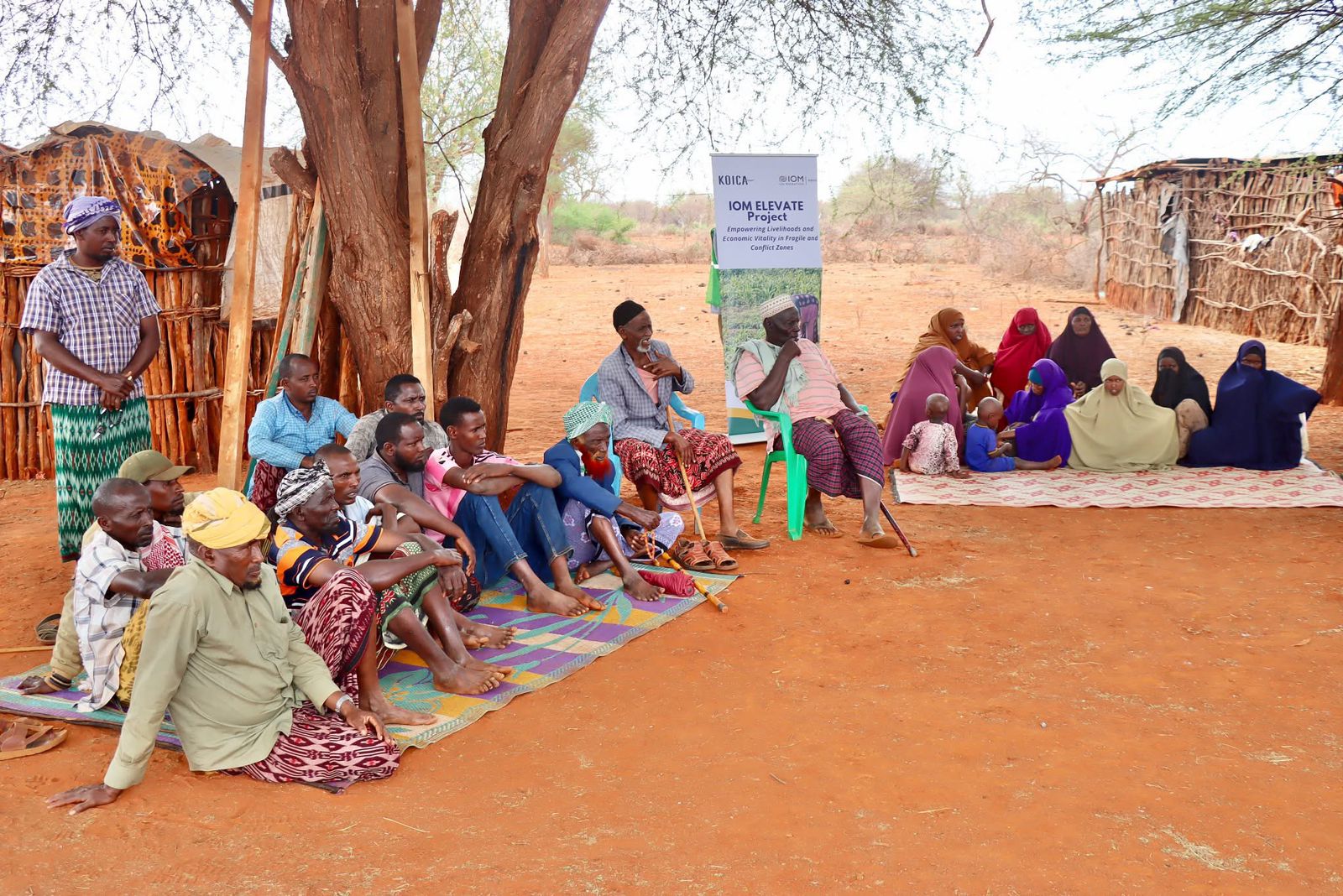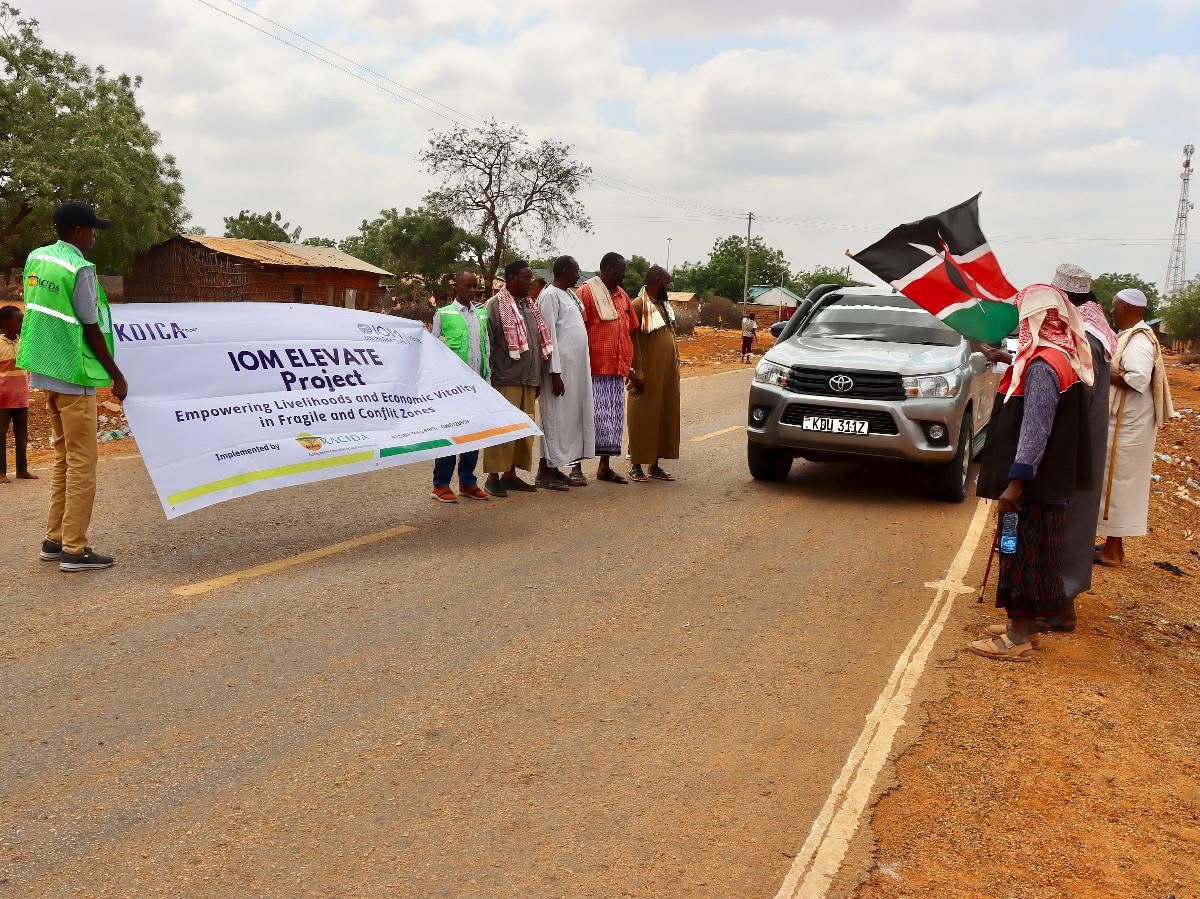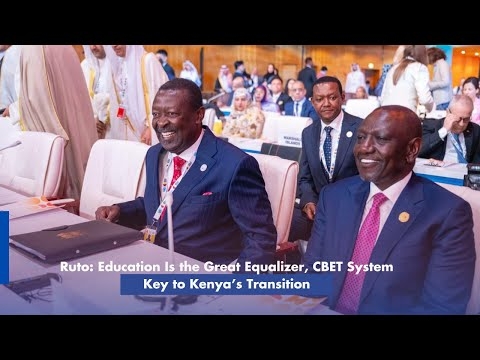 Residents of Qorodhobo village in Mandera West at the peace meeting./STEPHEN ASTARIKO
Residents of Qorodhobo village in Mandera West at the peace meeting./STEPHEN ASTARIKO Elders flagging off the peace caravan in Mandera West./STEPHEN ASTARIKO
Elders flagging off the peace caravan in Mandera West./STEPHEN ASTARIKO
Elders in Mandera have launched a
peace initiative to promote harmony in the conflict-prone county.
Mandera has for years been the
epicentre of inter-clan clashes, sparked by disputes over grazing land, water
points and political representation.
The violence has led to deaths,
displacement of families and destruction of property worth millions of
shillings.
In recent months, villages have
been deserted and residents fled for fear of attacks from rival communities.
The peace initiative led by Garre
and Degodia clans is supported by IOM–Koica and the county department of peace
and cohesion and implemented by Racida.
The team visited volatile areas in
a peace caravan.
The caravan brought together
religious leaders, elders, government administrators and departmental
representatives who traveled across the affected zones to share resolutions
from recent community dialogues and establish ceasefire and conflict-monitoring
committees.
Their first stop was in Mandera
West, one of the subcounties that was hardest hit by the clashes.
Yunis Sheikh, an elder from the
Garre community, described the destruction as heartbreaking, saying settlements
were abandoned.
“It is sad to see that people who
once coexisted peacefully no longer trust each other. Homes and schools now stand
empty — they’ve become shelters for wildlife. This initiative seeks to rebuild
trust, foster dialogue and promote lasting peace for a more united and secure
future,” he said.
Sheikh urged residents to embrace
peace, saying Islam teaches the value of life and neighbourliness.
“Peace is paramount in any setup.
It is the only way our people can grow. Without it, everything else comes to a
standstill. We must all do everything possible to safeguard it. We cannot keep
burying our young men and watching our children grow up in fear,” he said.
At Qorodhobo villages one and two,
the caravan witnessed abandoned homes, schools, and grazing fields — deserted
seven months ago when inter-clan fighting claimed several lives.
Mohamed Haji Dahir, representing
the Degodia community, urged displaced families to return to their homes
following the peace accord and appealed for humanitarian support.
“We appeal to the government and
humanitarian organisations to assist in resettling displaced families. Our MPs
should also complete stalled National Government Constituency Fund projects
abandoned during the conflict,” he said.
Mohamed Hussein, a youth leader,
welcomed the elders’ involvement, saying sustainable peace can only be achieved
through community-led initiatives.
“These elders carry moral authority
and command respect among their clans. Involving them ensures the process
remains rooted in community ownership,” he said.
The National Cohesion and
Integration Commission (NCIC) has also been involved in peacebuilding in Mandera
and other counties, working with partners to address ethnic divisions, resource
conflicts and political incitement.
The commission has adopted a
“bottom-up” model that places local leaders and communities at the heart of
identifying and resolving disputes — a shift from past top-down security
interventions.

















